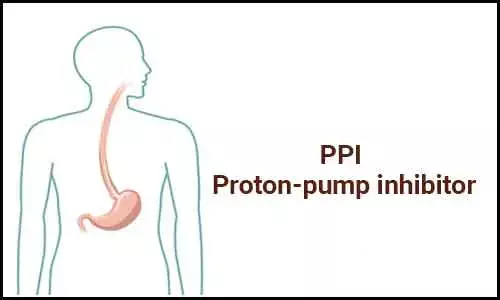- Home
- Medical news & Guidelines
- Anesthesiology
- Cardiology and CTVS
- Critical Care
- Dentistry
- Dermatology
- Diabetes and Endocrinology
- ENT
- Gastroenterology
- Medicine
- Nephrology
- Neurology
- Obstretics-Gynaecology
- Oncology
- Ophthalmology
- Orthopaedics
- Pediatrics-Neonatology
- Psychiatry
- Pulmonology
- Radiology
- Surgery
- Urology
- Laboratory Medicine
- Diet
- Nursing
- Paramedical
- Physiotherapy
- Health news
- Fact Check
- Bone Health Fact Check
- Brain Health Fact Check
- Cancer Related Fact Check
- Child Care Fact Check
- Dental and oral health fact check
- Diabetes and metabolic health fact check
- Diet and Nutrition Fact Check
- Eye and ENT Care Fact Check
- Fitness fact check
- Gut health fact check
- Heart health fact check
- Kidney health fact check
- Medical education fact check
- Men's health fact check
- Respiratory fact check
- Skin and hair care fact check
- Vaccine and Immunization fact check
- Women's health fact check
- AYUSH
- State News
- Andaman and Nicobar Islands
- Andhra Pradesh
- Arunachal Pradesh
- Assam
- Bihar
- Chandigarh
- Chattisgarh
- Dadra and Nagar Haveli
- Daman and Diu
- Delhi
- Goa
- Gujarat
- Haryana
- Himachal Pradesh
- Jammu & Kashmir
- Jharkhand
- Karnataka
- Kerala
- Ladakh
- Lakshadweep
- Madhya Pradesh
- Maharashtra
- Manipur
- Meghalaya
- Mizoram
- Nagaland
- Odisha
- Puducherry
- Punjab
- Rajasthan
- Sikkim
- Tamil Nadu
- Telangana
- Tripura
- Uttar Pradesh
- Uttrakhand
- West Bengal
- Medical Education
- Industry
Regular PPIs use increases rheumatoid arthritis risk in women

Delhi: Regular use of proton pump inhibitors (PPIs) increases the risk of rheumatoid arthritis (RA) with a higher risk observed in individuals with a longer duration of PPI use, according to a recent study in the journal Alimentary Pharmacology & Therapeutics.
PPIs are among the most commonly prescribed medications used worldwide. It is used for a variety of acid-related disorders such as peptic ulcer disease, non-ulcer dyspepsia, and gastroesophageal reflux disease. However, long-term use of PPIs has been linked with a variety of health problems. Previous studies have shown PPIs to have a significant impact on the gut microbiome, which in turn, might increase the risk of RA.
Yihang Pan, the Precision Medicine Center at The Seventh Affiliated Hospital, China, and colleagues evaluated the association between regular use of PPIs and RA risk.
For the purpose, the researchers conducted a prospective analysis of the US nurses who reported PPI use data from the Nurses' Health Study (NHS 2002‐2014) and NHS II (2003‐2015), and were free from RA. The exposure was regular PPI use in the past 2 years. RA was confirmed by the 1987 or 2010 American College of Rheumatology criteria.
Key findings of the study include:
- 421 cases of RA were documented over 1 753 879 person‐years of follow‐up.
- Regular PPI users had a 44% higher risk of RA as compared with non‐regular users (adjusted HR = 1.44).
- The risk of RA increased with the total duration of PPI use.
- Compared with non‐regular users, the adjusted HRs were 1.22 for women with >0 to 4 years' use and 1.73 for >4 years' use.
"Regular use of PPI was associated with increased risk of RA in women, with a higher risk observed in individuals with a longer duration of PPI use. Due to the observational study design, large prospective trials are still required to confirm our finding," concluded the authors.
The study, "Regular use of proton pump inhibitor and risk of rheumatoid arthritis in women: a prospective cohort study," is published in the journal Alimentary Pharmacology & Therapeutics.
DOI: https://doi.org/10.1111/apt.15834
Dr Kamal Kant Kohli-MBBS, DTCD- a chest specialist with more than 30 years of practice and a flair for writing clinical articles, Dr Kamal Kant Kohli joined Medical Dialogues as a Chief Editor of Medical News. Besides writing articles, as an editor, he proofreads and verifies all the medical content published on Medical Dialogues including those coming from journals, studies,medical conferences,guidelines etc. Email: drkohli@medicaldialogues.in. Contact no. 011-43720751


